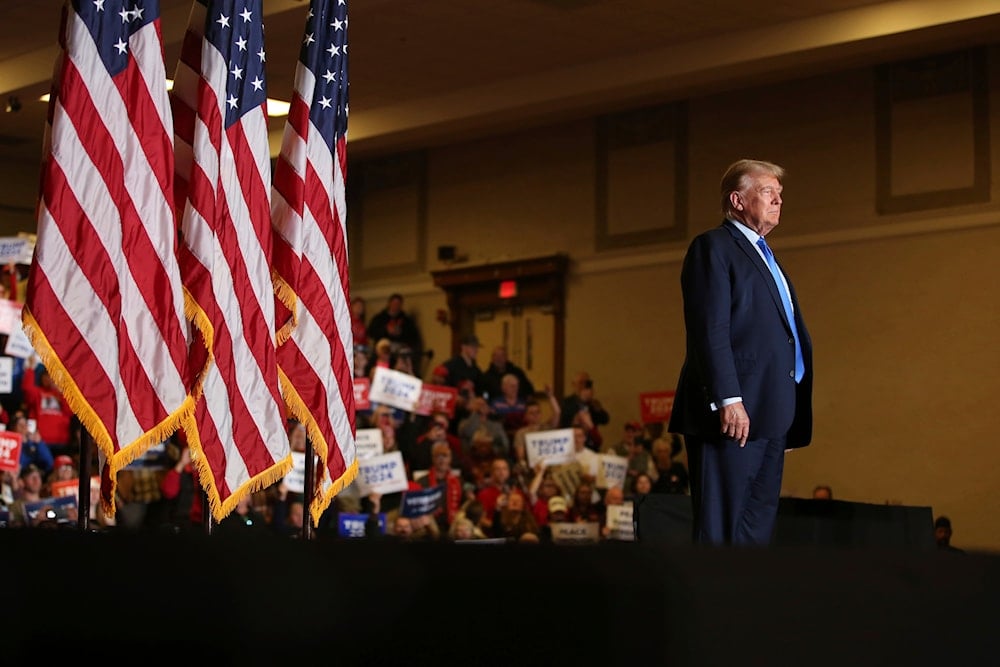Trump cleared by Michigan court to run for 2024 elections
Michigan Court of Claims judge James Redford states that Michigan’s electoral authorities are not in a place of power to remove Trump from the ballot after a local activist group tried to bar him from reelection.
-

Former President Donald Trump waves to the crowd at a campaign rally on Nov. 11, 2023, in Claremont, New Hampshire. (AP)
A Michigan state court has ruled that former US President Donald Trump is eligible to stay on the state's 2024 presidential primary ballot for the Republican Party after a local activist group Free Speech for People attempted to bar Trump from running for office by filing an “insurrection” lawsuit against him.
Michigan Court of Claims judge James Redford was responsible for the ruling, in which he said that deciding if the January 6 riots represented a “rebellion or insurrection, or whether or not someone participated in it” should be deferred to Congress - stressing that Michigan’s electoral authorities are not in a place of power to remove Trump from the ballot.
Free Speech for People had invoked Section 3 of the 14th Amendment stating that a person cannot run for elected office if they “engaged in insurrection or rebellion” against the constitution.
In response, Trump campaign spokesperson Steven Cheung relayed that his team welcomed the decision and “anticipates the future dismissals of the other 14th Amendment cases.”
Last week, a lawsuit against Trump was dismissed by Minnesota’s Supreme Court and a verdict in a case in Colorado is expected by Friday.
Read next: Republican candidate Tim Scott withdraws; Trump in the lead
Stacking lawsuits
Just last month, the US Supreme Court shot down an attempt by Texas Republican John Anthony Castro to ban Trump from being reelected in 2024 on the basis of the 14th Amendment.
Trump is scheduled to appear before a federal judge in Washington on March 4, where he faces charges related to attempting to overturn the 2020 presidential election.
Afterward, Trump will face criminal hush money charges in a New York state court, and he is also accused of mishandling classified documents in a Florida federal court following his departure from office. Additionally, he will confront state charges in Georgia, where prosecutors accuse him of unlawfully attempting to influence the 2020 election results in his favor.

 2 Min Read
2 Min Read








